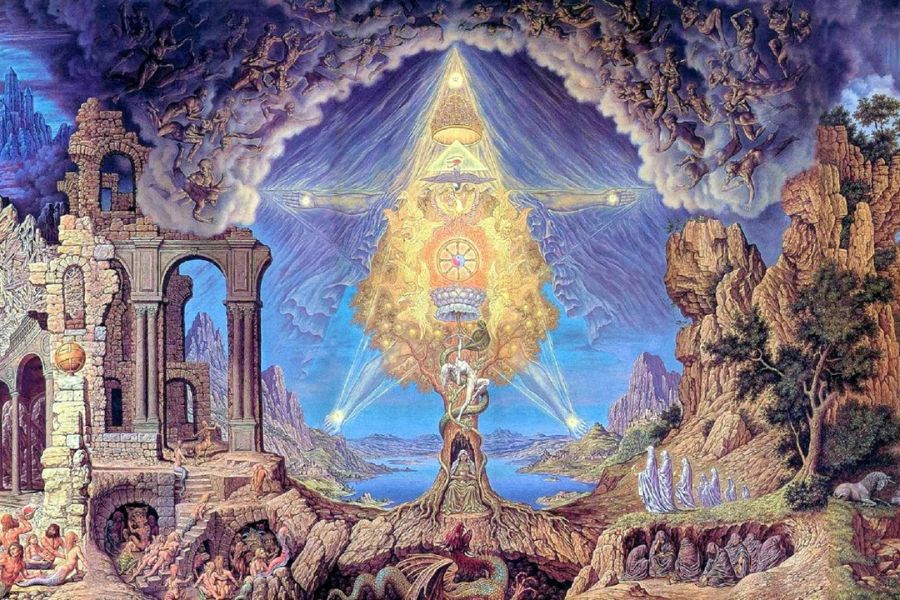In the teachings of Samael Aun Weor, morality is a concept that, while widely accepted, is approached with skepticism.
For him, morality, as it is understood in contemporary societies, is a construct that often reflects the customs of a time or place, without considering the universal and spiritual principles that govern human life.
Morality, in his view, is enslaved by social conventions, trends, and values that change with time. What is considered moral in one context may be seen as immoral in another. The example he cites about ancient China is a poignant illustration of the moral distortions that can arise from deeply rooted local value systems. In that context, actions like abandoning newborn girls or even killing an elderly father were, for a time, accepted as normal, even morally justifiable behaviors.
This is one of the greatest paradoxes of morality: it can be cruel, unjust, and oppressive, depending on social conventions and the time period. For Samael Aun Weor, human morality is merely a reflection of humanity's prejudices and limitations. It is not universal or spiritual. It is a mask that conceals the true nature of the human being, preventing him from reaching true freedom.
In a world where what is considered moral is subject to collective approval and social acceptance, morality often shapes human behavior in a rigid and sometimes destructive manner. A concept that should be guiding becomes a mental prison. Moral precepts can condition individual freedom, authentic self-expression, and even spiritual evolution.
We can then see that morality should not be regarded as an immutable guide for human life, but as a product of culture, education, and the circumstances of each society. In fact, moral systems often contribute to oppression, intolerance, and conformity. What is morally accepted at one time can be viewed as backward or barbaric at another. This mutable nature of morality is proof that it is neither universal nor absolute.
In light of this reality, Samael Aun Weor proposes a radical solution: Revolutionary Ethics. This ethics is not bound by the moral values established by social conventions, but is based on spiritual principles that seek true freedom and self-realization of the human being. Revolutionary ethics is a path of inner transformation, where the individual frees themselves from the chains of traditional morality and finds a new sense of direction and purpose in life.
Revolutionary ethics, therefore, is a call to authentic freedom. It is not a simple code of conduct or rules imposed by society, but a process of self-discovery and self-reflection. In this ethics, each individual becomes responsible for their own actions, guided by the awareness of their divine essence and the deep understanding of their virtues and weaknesses.
It is necessary, as Samael Aun Weor teaches, to take an inner inventory, a self-examination, to know what is missing and what remains in our lives. Virtues, however sacred they may be, must be handled with wisdom. A virtue out of place can cause great harm, as has been seen in various situations throughout history, where even saints, acting with virtue without full understanding, harmed humanity.
The proposal of revolutionary ethics is not to abolish morality, but to transcend traditional morality and refrain from relying on a set of external rules. True ethics arises from awakened consciousness, from the self-realization of the being. It is dynamic, fluid, and, above all, deeply transformative. It is not a rigid system of rules but a living, organic approach to human life.
Traditional morality often leads to stagnation, conformity, and repression. Revolutionary ethics, on the other hand, seeks true freedom, without fear of breaking with social conventions. By liberating ourselves from the limitations of conventional morality, we can reach a new level of understanding and action, in which our decisions are based on higher principles and a deep understanding of the nature of the human being and the universe.
Thus, Samael Aun Weor challenges us to abandon morality as an external guide and embrace revolutionary ethics, which arises from our very essence. Only when we are able to live according to our inner truth, not the rules imposed by society, can we truly break free from the chains that bind us and walk the path of inner self-realization.




















